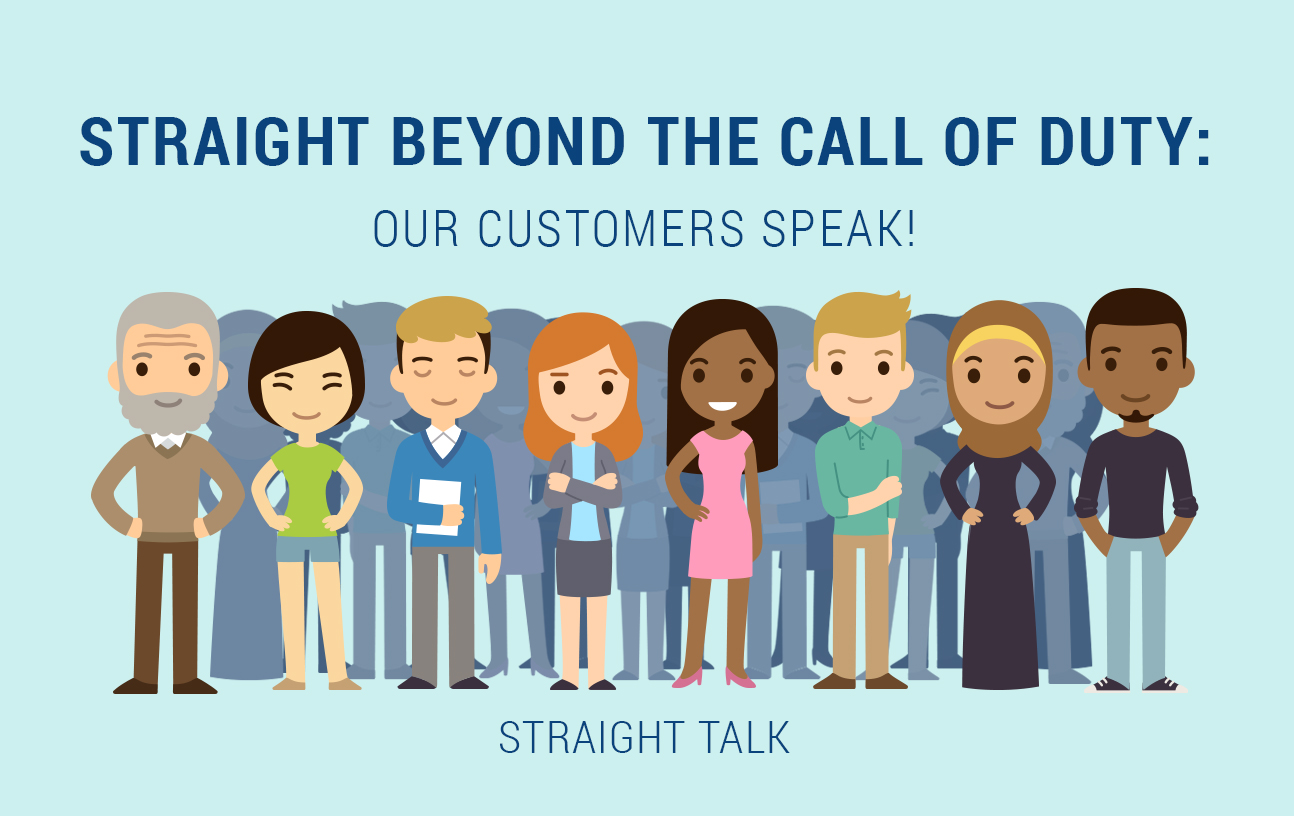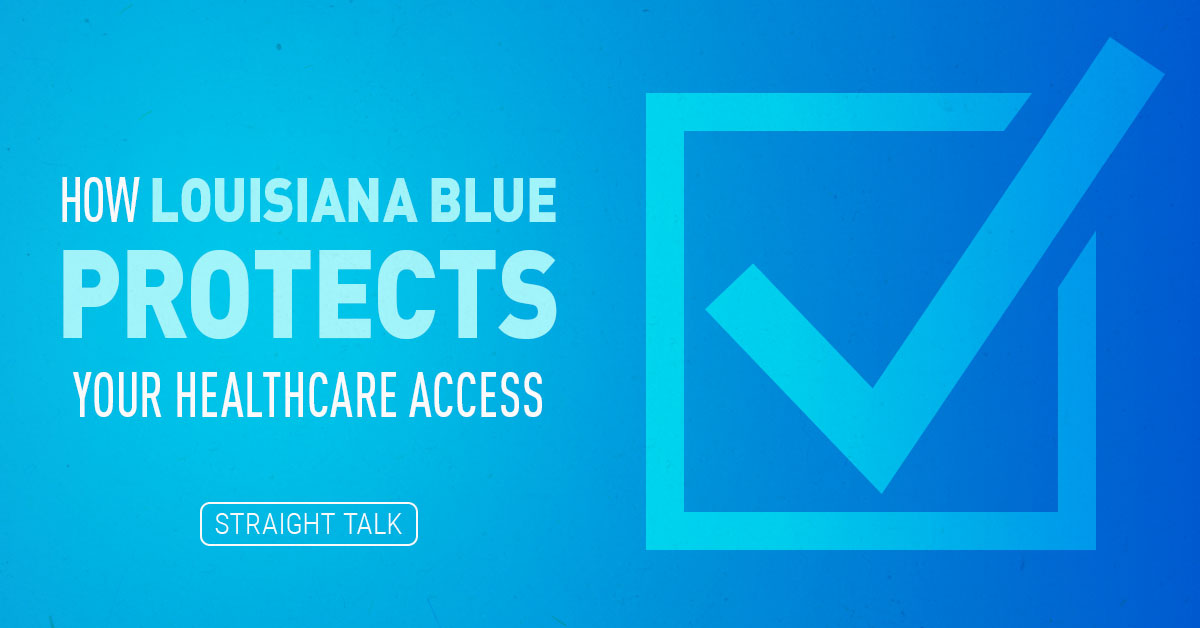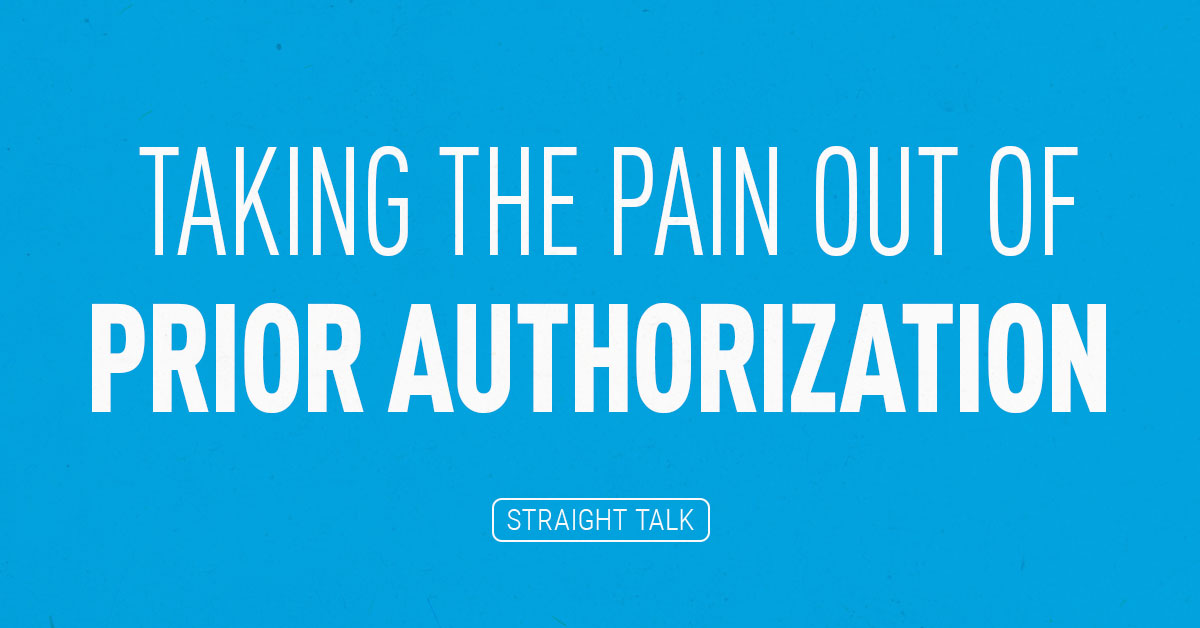
Fair enough!
I get quite a bit of feedback every week as we’ve expanded the reach of Straight Talk around the state and beyond. Much of it expresses similar sentiments to this Blue Cross member. He wants me to disclose that health insurance providers made more profits with the “Affordable” Health Care act than in the years before it was enacted. Oh, Member! I wish I could say that – if that were the case, rates would be a LOT lower and the healthcare.gov risk pool would be stable.
But that’s not reality, and it’s not the Straight Talk story. I’ll give you the rundown to show why this is.
That Was Then …
Before the Affordable Care Act went into force in 2014, Blue Cross had relatively little difficulty balancing premiums we collected with our members’ healthcare expenses. In a typical year, after all the premiums were collected and all the claims and other expenses had been paid, we could put .5 to 1% of the money left into our rainy day fund.
Remember, as a not-for-profit mutual plan, our members are our owners*, and every dime of money that comes through our door belongs to you. It is the highest honor in my life to know that more than one million of my family, friends and fellow Louisianians each year trust us to manage around $3 billion of their money to help pay their healthcare costs. Individual health insurance premium rates were totally stable, with increases running in mid-single digits every year until 2014, when the ACA took effect.
And Then …
Since we are a mutual company and a not-for-profit, we don’t use any of your money for stocks distributions to nameless, faceless shareholders scattered around the world. Every cent you pay Blue Cross goes to one of four places (listed in order of most likely):
- Payment to doctors, hospitals, pharmacies and others for your and other customers’ healthcare (87% in 2015, more than 85% in 2016)
- Operational costs of making these payments, like claims processing, staff to coordinate between Blue Cross and your doctor’s office, wellness programs, etc. (around 10%)
- Taxes (typically 4%), including the costs of following all state and federal laws
- YOUR rainy day fund.
This Is Now
Since the ACA took effect, instability in the individual market made it rain pretty hard, and we had to dip into it to help pay your healthcare bills and keep our doors open. In 2016, we were able to make a very small contribution (six tenths of one percent, or 0.6%, of all revenue coming in) to the rainy day fund. But, getting our corporate ship back to an even financial keel under the ACA has been a huge battle.
Even though premiums on our individual products and some group products are much higher than they were before the ACA, our profits are not higher. In fact, they are consistently lower than they were before the ACA was passed in 2010. So, more money is coming in the door, but Blue Cross has less left over at the end of the day? You bet. Here’s why:
- Rule 1 of the ACA is that you have to sell insurance to anyone who shows up wanting it, regardless of how sick people are when they show up. This means we have individual customers coming in who are immediately taking more money out of the system (through their healthcare costs) than they put in (through their premium payments). This was not the case before the ACA, it has forced individual rates to more than double since 2010. The “new” folks needed a lot of healthcare and still do.
- With the ACA, the feds tell us what we have to cover in every product and, in many cases, what has to be covered for FREE with each policy. In other words, there are now 46 different tests, screenings, medicines and counseling sessions a customer can get every year and pay $0 copays or deductible out of pocket. We pay for all these costs out of premiums because the law says we have to. This wasn’t the case before ACA.
- The ACA has specified that younger folks have to pay much more for their health insurance compared to older folks than they did pre-ACA. By my estimation, premiums for 25-year-olds are on average 75% higher than they should be. Why? Because the ACA demands I give that savings (around $125/month) to older people in their 60s.This means young folks aren’t buying coverage and the average age in our individual risk pool has risen from around 34 years to more than 45 years. Older customers cost a lot more in healthcare, as you can imagine.
- Because the ACA as written was actually pretty vague; more than 90,000 pages of new regulations have been written by the federal agencies in charge and sent down to us to read, understand, process and comply with.I have to tell you, putting all that into action means we have more employees than we had in 2010 – significantly more – because we need them to work on things related to the ACA. It also means we are more exposed to making mistakes with state and federal regulators, and we have to check ourselves a lot more than we used to. That all costs more money.
- Finally, the Feds have done a lousy job of policing who gets health insurance inside the ACA marketplaces like healthcare.gov and who doesn’t. It’s been far too easy for people to get coverage after they get sick, keep it until they get well and then drop it. How easy?
Only 40% of the people who bought insurance on healthcare.gov in 2015-2016 actually paid 12 premiums in a row. That means 60% of these new customers could have been gaming the system, or at the very least got in and out of the risk pool too quickly. The previous administration didn’t tighten the rules between 2015-2016, which drove up your costs dramatically.
What I Can Disclose
So you see I’m a huge believer in addressing our member’s comments; he is a Blue Cross client and deserves clear, real, strong, Straight answers to his questions. I’m standing by with all the data I can give him to help wipe away the fog the ACA has left us with
I want to tell you all as much as I can about what is happening to healthcare without taking a political stand, and I understand some folks won’t like it. That’s cool with me, as long as the word gets out.
Hope this helps, sir! If not, I’m here to answer any other questions you might have, as Straight as I can.
Do you have a question you want Mike to address in a future blog? Email us at corporate.communications@bcbsla.com.
* Anyone who holds a contract with Blue Cross is an owner. This includes companies that pay premiums on behalf of their employees, but not their employees, and individual members who hold policies (for family coverage, this would be the person whose name is on the contract).





This is actually helpful, thanks.